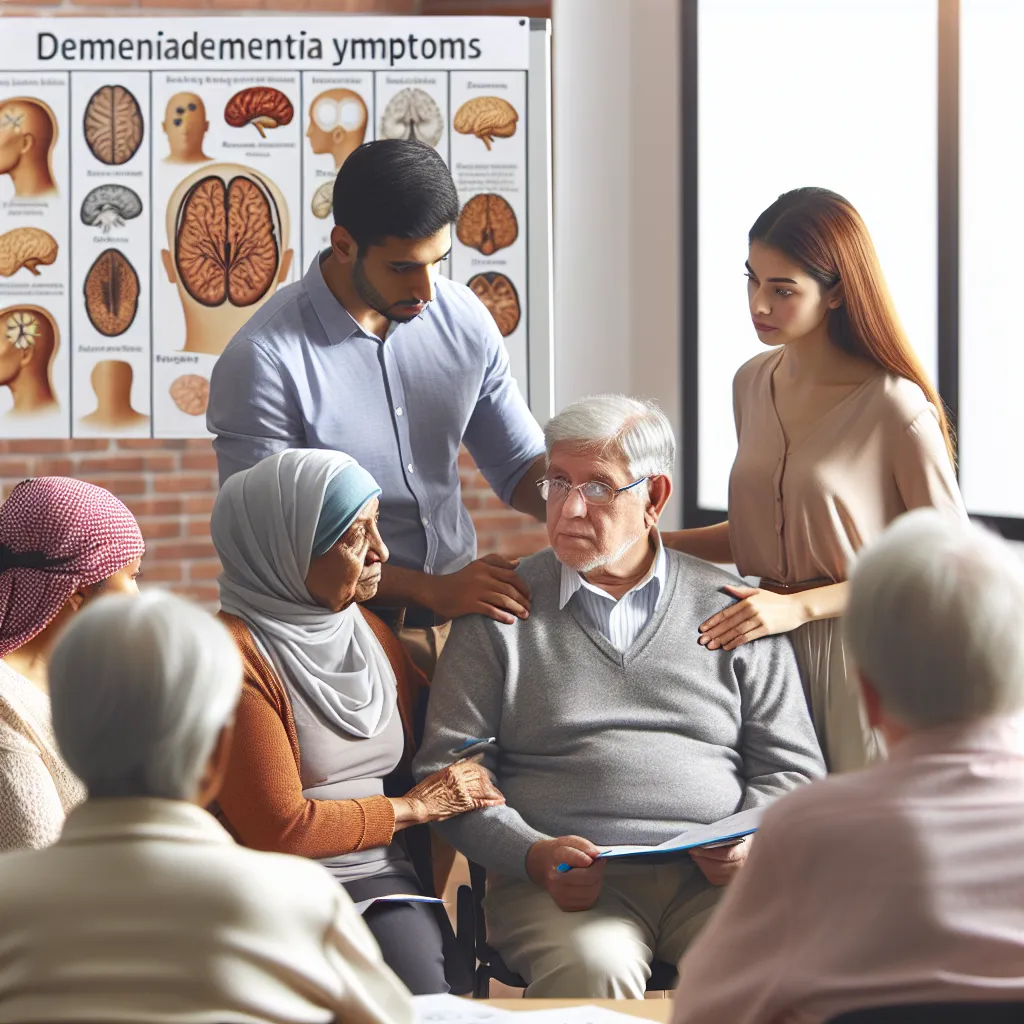Dementia Symptoms: Understanding the Signs and Seeking Support
Dementia Symptoms: Understanding the Signs and Seeking Support
Dementia is a term used to describe a range of symptoms associated with a decline in memory or other thinking skills
severe enough to reduce a person’s ability to perform everyday activities. It is not a specific disease but rather
a general term that encompasses various conditions, the most common one being Alzheimer’s disease. Understanding
the symptoms of dementia is crucial for early detection and prompt intervention. In this article, we will explore
the different signs of dementia and discuss the importance of seeking support for individuals and their caregivers.
1. Memory Loss
Memory loss is one of the most common symptoms of dementia. It often starts with forgetting recent events or important
dates, and gradually progresses to forgetting significant life events or even the names of close family members
and friends. Individuals may also struggle to retain new information or frequently misplace everyday objects.

2. Difficulty with Language and Communication
Dementia can affect a person’s ability to express themselves verbally and understand others. They may have trouble
finding the right words, following conversations, or organizing their thoughts. Simple tasks such as writing a
letter or email can become increasingly challenging.
3. Impaired Judgment and Reasoning
Individuals with dementia often exhibit poor judgment and decision-making skills. They may make inappropriate or
unsafe choices, such as wearing inappropriate clothing for the weather or falling victim to scams. Their ability
to reason and solve problems also declines significantly.
4. Confusion and Disorientation
Confusion and disorientation are common symptoms of dementia. Those affected may have difficulty recognizing familiar
places, faces, or objects. They may become easily disoriented, even in familiar surroundings, and struggle to
follow directions or find their way back home.
5. Changes in Mood and Personality
Dementia can cause significant changes in a person’s mood and personality. They may become irritable, agitated,
or easily upset. Depression, anxiety, and paranoia are also common. These behavioral changes can have a profound
impact on relationships and daily interactions.
6. Loss of Initiative
Individuals with dementia often lose their ability to initiate and complete tasks. They may lack motivation, show
a reduced interest in previously enjoyed activities, or struggle with basic self-care routines. This loss of
initiative can lead to dependency and further deterioration of cognitive abilities.
7. Challenges with Motor Skills
As dementia progresses, individuals may experience difficulties with coordination and motor skills. They may struggle
to perform activities that require fine motor skills, such as buttoning clothes or using utensils. Walking and
balance problems may also arise, increasing the risk of falls.
Seeking Support for Dementia
Recognizing the symptoms of dementia is the first step towards seeking appropriate support and care. If you or a
loved one is experiencing any of the aforementioned signs, it is crucial to consult a healthcare professional
for a comprehensive evaluation.
A medical assessment can help determine the underlying cause of the symptoms and guide treatment options. Early diagnosis
allows for better management of the condition and access to support services that can enhance quality of life.
Support for Individuals with Dementia:
- Memory clinics and specialized dementia centers provide comprehensive assessments, support, and guidance for individuals with dementia and their families.
- Support groups offer a safe space for sharing experiences and coping strategies with others who understand the challenges of dementia.
- Occupational therapy can help individuals maintain independence and learn strategies to overcome cognitive difficulties.
- Medication and treatment plans may be prescribed to manage specific symptoms and slow down the progression of the disease.
Support for Caregivers:
- Education and training programs can provide caregivers with essential knowledge about dementia, caregiving techniques, and self-care.
- Respite care services offer temporary relief to caregivers, allowing them to take a break and recharge.
- Counseling and therapy sessions can help caregivers navigate the emotional challenges and stress associated with caring for someone with dementia.
- Financial and legal assistance can be sought to ensure appropriate planning and decision-making for the future.
In conclusion, dementia symptoms can significantly impact an individual’s cognitive, emotional, and physical well-being.
Recognizing these signs early on and seeking support is crucial for effective management and improved quality of
life. Whether you are the person experiencing symptoms or a caregiver, remember that you are not alone. There
are numerous resources available to help you navigate the challenges associated with dementia and provide the
support you need.
